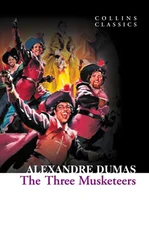Alexandre Dumas - The Prussian Terror
Здесь есть возможность читать онлайн «Alexandre Dumas - The Prussian Terror» — ознакомительный отрывок электронной книги совершенно бесплатно, а после прочтения отрывка купить полную версию. В некоторых случаях можно слушать аудио, скачать через торрент в формате fb2 и присутствует краткое содержание. Жанр: foreign_antique, foreign_prose, на английском языке. Описание произведения, (предисловие) а так же отзывы посетителей доступны на портале библиотеки ЛибКат.
- Название:The Prussian Terror
- Автор:
- Жанр:
- Год:неизвестен
- ISBN:нет данных
- Рейтинг книги:4 / 5. Голосов: 1
-
Избранное:Добавить в избранное
- Отзывы:
-
Ваша оценка:
- 80
- 1
- 2
- 3
- 4
- 5
The Prussian Terror: краткое содержание, описание и аннотация
Предлагаем к чтению аннотацию, описание, краткое содержание или предисловие (зависит от того, что написал сам автор книги «The Prussian Terror»). Если вы не нашли необходимую информацию о книге — напишите в комментариях, мы постараемся отыскать её.
The Prussian Terror — читать онлайн ознакомительный отрывок
Ниже представлен текст книги, разбитый по страницам. Система сохранения места последней прочитанной страницы, позволяет с удобством читать онлайн бесплатно книгу «The Prussian Terror», без необходимости каждый раз заново искать на чём Вы остановились. Поставьте закладку, и сможете в любой момент перейти на страницу, на которой закончили чтение.
Интервал:
Закладка:
It was, however, by no means the only safety valve at which the passion of the surging crowd, now at white heat, sought and found a vent. A little lower down, at the corner of the Friedrich Strasse, a well-known singer happened to be returning from rehearsal, and as he chanced on one occasion to have made a hit by singing "The German Rhine" some one who remembered this raised a cry of "The German Rhine! the German Rhine! Heinrich! sing 'The German Rhine!'" The crowd instantly recognized and surrounded the artist, who, owning a fine voice, and being familiar with the piece demanded, did not wait to be asked twice, but gratified his audience by singing his very best, thereby far surpassing the Return in the tremendous reception he obtained.
But all at once a loud and furious hiss which might have issued from the throttle of a steam engine was heard above all the wild applause, and produced the effect of a blow in the face bestowed on the singer. A bomb suddenly exploding in the crowd could hardly have been more effective; the hiss was answered by a dull roar something like that which precedes a hurricane and every eye was turned towards the quarter whence it proceeded.
Standing by a solitary table was a handsome young man, apparently about five-and-twenty, fair-haired, fair-skinned, rather slightly built, and in face, moustache and costume somewhat resembling the portrait of Vandyke. He had just opened a bottle of champagne and held a foaming glass aloft. Undisturbed by angry looks and threatening gestures he drew himself up, placed one foot on his chair, and raising his glass above his head cried loudly, "Vive la France!" then swallowed the contents at one draught.
CHAPTER II
THE HOUSE OF HOHENZOLLERN
The immense crowd surrounding the young Frenchman remained for a moment dumb with stupefaction. Many, not understanding French, failed to comprehend his meaning, and others who did understand, appreciating his courage in thug braving a furious crowd, surveyed him with more astonishment than anger. Others again, who realized that a dire insult had been offered them, would nevertheless with typical German deliberation have allowed him time to escape had he wished. But the young man's demeanour showed that, whatever the consequences of his bravado, he intended to face them. Presently a threatening murmur of "Franzose, Franzose," arose from the crowd.
"Yes," said he, in as good German as might be heard anywhere between Thionville and Memel. "Yes, I am French. My name is Benedict Turpin. I have studied at Heidelberg and might pass for a German since I can speak your language as well as most of those here, and better than some. Also I can use a rapier, pistol, sword, sabre, single-stick, boxing gloves, or any other weapon you like to choose. Any one wishing for satisfaction may find me at the Black Eagle."
The young man had hardly finished his audacious defiance when four men of the lower class advanced upon him. The crowd kept silence, and the contemptuous words, "What! four to one? Leipzig again! Come on! I am ready!" were distinctly heard. Then, not waiting to be attacked, the young Frenchman sprang at the nearest and broke the bottle of champagne over his head, blinding him with foam. The second he tripped up, throwing him a good ten paces off, and disposed of the third with a vigorous blow in the ribs which hurled him against a chair. Then, seizing the fourth by the collar and grasping his waist he actually held him aloft in the air for a moment, then flinging him on the ground he placed a foot on his chest.
"Is not Leipzig avenged?" said he.
Then at last the tempest burst. A rush was made for the Frenchman, but he, still keeping a foot on his fallen enemy, seized a chair and whirled it round him so vigorously that for a moment the crowd was held at bay and only ventured on threats. But the circle drew closer, some one grasped the chair and succeeded in stopping it. A few moments more and the audacious Frenchman would probably have been torn to pieces had not two or three Prussian officers intervened. They forced their way through the crowd and formed a guard around the young man, one of them addressed the crowd thus:
"Come, come, my friends, don't murder a brave young man because he does not forget he is a Frenchman and has cried 'Vive la France!' He will now cry 'Vive Guillaume IV!' and we will let him off." Then, whispering to Benedict, "Cry 'Vive Guillaume IV!' or I can't answer for your life."
"Yes!" bawled the crowd, "let him cry 'Vive Guillaume IV! – Vive la Prusse!' and we will let him go."
"Very well," said Benedict, "but I prefer to do so freely, and without compulsion. Leave me alone and let me speak from a table."
"Stand aside and let him pass," said the officers, releasing Benedict and leaving him free. "He wishes to address you."
"Let him speak! let him speak!" cried the crowd.
"Gentlemen!" said Benedict, mounting the table nearest to the open windows of the café, "oblige me by listening. I cannot cry 'Vive la Prusse,' because at this very moment my country may be at war with yours, in which case a Frenchman would disgrace himself if he cried anything except 'Vive la France.' Nor can I very well cry 'Vive le roi Guillaume,' because, not being my king, it does not matter to me whether he lives or dies. But I will recite some charming verses in answer to your 'German Rhine!'"
The audience heard him impatiently, not knowing what he meant to recite. They had another disappointment in discovering that the lines in question were not German but French. However, they listened with all the more attention. In enumerating his accomplishments Benedict had omitted those of amateur actor and elocutionist. The lines were those written by de Musset in response to the "German Rhine," and they lost nothing in his impassioned delivery. Those among his hearers able to follow the reciter soon perceived that they had been tricked into listening to truths they had no desire to hear. Once this was understood, the storm, momentarily lulled, burst forth with redoubled violence.
Knowing that there would be no further chance of protection, Benedict was carefully considering the distance between his table and the nearest window, when suddenly the attention of the crowd was diverted by the report of several pistol-shots rapidly fired in the immediate vicinity. Turning towards the sound they perceived a well-dressed young civilian, struggling desperately with a much older man in colonel's uniform. The young man fired again, with the only result of further exasperating his adversary, who seized him with a grasp of iron, and, disdaining to call for help, shook him as a terrier shakes a rat. Then, throwing him down, he knelt upon the would-be murderer's chest, tore the now useless revolver from his hand, and placed the barrel against his forehead. "Yes, fire, fire!" gasped the young man. But the colonel, in whom the bystanders now recognized the powerful minister, Count von Bismarck, changed his mind. He pocketed the revolver, and beckoning to two officers, "Gentlemen," said he, "this young man is probably mad, or at any rate he is a clumsy fool. He attacked me without the slightest provocation and has fired five times without hitting me. You had better consign him to the nearest prison whilst I acquaint the king with what has happened. I think I need hardly mention my name – Count von Bismarck."
Then, wrapping his handkerchief round his hand which had been slightly scratched in the conflict, the count retraced his steps towards the royal palace hardly a hundred yards distant, while the two officers handed the assassin over to the police. One of them accompanied him to the prison, where he was at once incarcerated. The crowd having now time to remember Benedict Turpin found that he had vanished. However, this did not trouble them much, for the excitement of the more recent event had changed the course of their ideas. Let us profit by the interval and glance at the characters who are destined to appear in our recital. But, first let us examine the stage on which they will play their several parts.
Читать дальшеИнтервал:
Закладка:
Похожие книги на «The Prussian Terror»
Представляем Вашему вниманию похожие книги на «The Prussian Terror» списком для выбора. Мы отобрали схожую по названию и смыслу литературу в надежде предоставить читателям больше вариантов отыскать новые, интересные, ещё непрочитанные произведения.
Обсуждение, отзывы о книге «The Prussian Terror» и просто собственные мнения читателей. Оставьте ваши комментарии, напишите, что Вы думаете о произведении, его смысле или главных героях. Укажите что конкретно понравилось, а что нет, и почему Вы так считаете.












